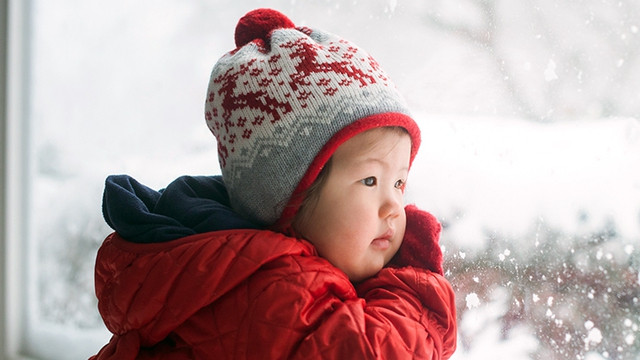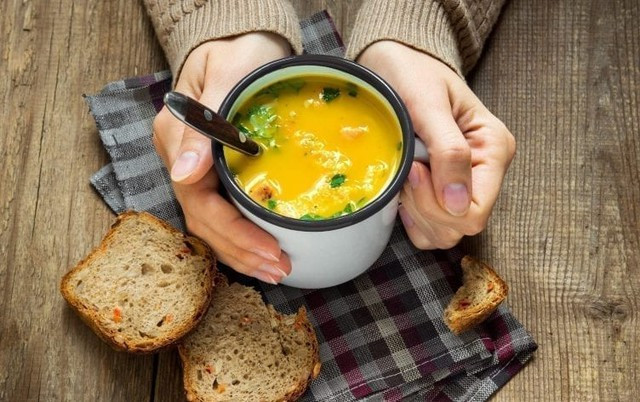How to protect your health when it's cold and the temperature drops sharply
On cold days, when the temperature drops, even very low, people need to pay attention to ways to protect the health of themselves and their families.
Low temperatures in winter, sudden changes in temperature, and cold weather are some of the causes of illness and health problems becoming more serious. People need to pay attention to protecting themselves to prevent the risk of contracting some diseases in cold weather.
1. People at high risk are vulnerable to cold weather
According to Dr. Nguyen Dang Khiem - Head of the Emergency Department, Friendship Hospital, the sharp drop in temperature, especially in the northern provinces, can aggravate underlying diseases, especially in the elderly.
In cold weather, people in more vulnerable situations need to pay special attention, in particular:
Elderly people over 65 years old. Infants and young children. People with chronic diseases, people with mental illness. Pregnant women.
2. How to protect your health in cold weather

Doctors recommend that with the cold weather in the North at this time, you need to pay attention:
Avoid sudden exposure to cold weather, especially when it is below 15 degrees Celsius. Limit going out during the coldest times. It is best to stay indoors or in the office, which is a place protected from the wind.
The elderly, children, people with poor health… should stay at home.
Wear appropriate warm clothing, a woolen hat, gloves, shoes, and socks. Wear layers of clothing (rather than one warm layer) according to the temperature of the environment (indoors or outdoors). At this time of year, dress in layers "like an onion". Avoid wearing tight clothing as it restricts blood circulation.
Wear comfortable, warm shoes with good grip to avoid falls, especially on wet ground.
Increase protection for the head, face and limbs (arms and legs), use gloves, a cap, warm socks and a scarf (preferably woolen, cotton).
Pay attention to skin care, especially on exposed areas, and apply moisturizer if needed.
Maintain good exercise habits but avoid strenuous exercise outdoors in cold weather.
3. Things to note at home
Indoor temperatures should be maintained at a minimum of 18°C, especially where elderly people, people with chronic illnesses or mobility problems are present.
For active, healthy people, room temperatures below 18°C are perfectly acceptable, as long as they are comfortable.
Babies should sleep at a room temperature between 16°C and 20°C.
Aerate and ventilate your home daily to prevent condensation and moisture build-up. This is best done between mid-morning and early afternoon, when the outside temperature is higher. Then, close doors and windows to prevent drafts.
To warm your bed, use a hot water bottle or an electric blanket, but never both at the same time. Always turn off the electric blanket when you go to bed.
Regularly check that electric or gas heating equipment is in good working order before use.
When using a fireplace, check that the room is adequately ventilated to avoid the build-up of toxic gases.
Keep heaters away from people, furniture, and other materials, especially flammable materials. Pay special attention to the elderly and children to avoid burns.
Do not use outdoor heating equipment in indoor spaces and vice versa.
Do not use coal or wood heating because it is dangerous to health and a fire hazard.
Before leaving the house or going to bed, remember to turn off the heating equipment to avoid fire or poisoning.
4. On the go or working outdoors
People working outdoors in the cold need to pay attention to keeping their bodies warm. If burning wood for heating, pay attention to safety.
Dress warmly and cover your head, ears, neck, hands, etc. when riding a motorbike.
When driving a car, you should warm up the car interior, pay attention to ventilation and temperature changes.
Make sure your car has enough fuel if you are going on a long trip.
5. Note your diet in cold weather

On cold days, it is important to stay well hydrated and drink plenty of water. To help kick-start your day, drink hot drinks (water, milk and tea) and hot foods (e.g. soup, porridge, pho). Eat at least one hot meal a day. Avoid alcoholic drinks and try to eat at least five portions of fruit and vegetables daily.
Healthy foods to eat in cold weather:
One of the best things to boost your immune system and improve your mood is to include foods that are high in vitamin C. These include citrus fruits, oranges, mangoes, lemons, kiwis, broccoli, bell peppers, and strawberries.
The following food choices are not only good for winter health, but can also improve mood:
- Vegetables: Vegetables like carrots boost beta-carotene or boiled radishes provide vitamins C and A.
- Broccoli and cauliflower: These cruciferous vegetables may be your top defense against winter illnesses. Broccoli and cauliflower are both high in vitamin C, which has been linked to improved immune function.
- Foods rich in vitamin D: Should be added to the menu during the winter months. Great sources of vitamin D are shiitake mushrooms, salmon, egg yolks, fortified cereals, milk and red meat.
- Oatmeal: Provides essential nutrients during the winter. Oatmeal can be modified by adding warming spices like cinnamon, cardamom, and nutmeg without adding calories, fat, sugar, or salt. Oatmeal is high in zinc (important for proper immune function) and soluble fiber (linked to heart health).
- Soup: Soup is the perfect winter dish, you can make soup from chicken broth, vegetable broth, add more vegetables, beans to the soup to add more lean protein as well as much necessary fiber. Protein and fiber both limit appetite by slowing down digestion and controlling blood sugar, which can help control hunger and improve mood.
- Mood-boosting snacks: Choose sweet potatoes, beets, and walnuts.
